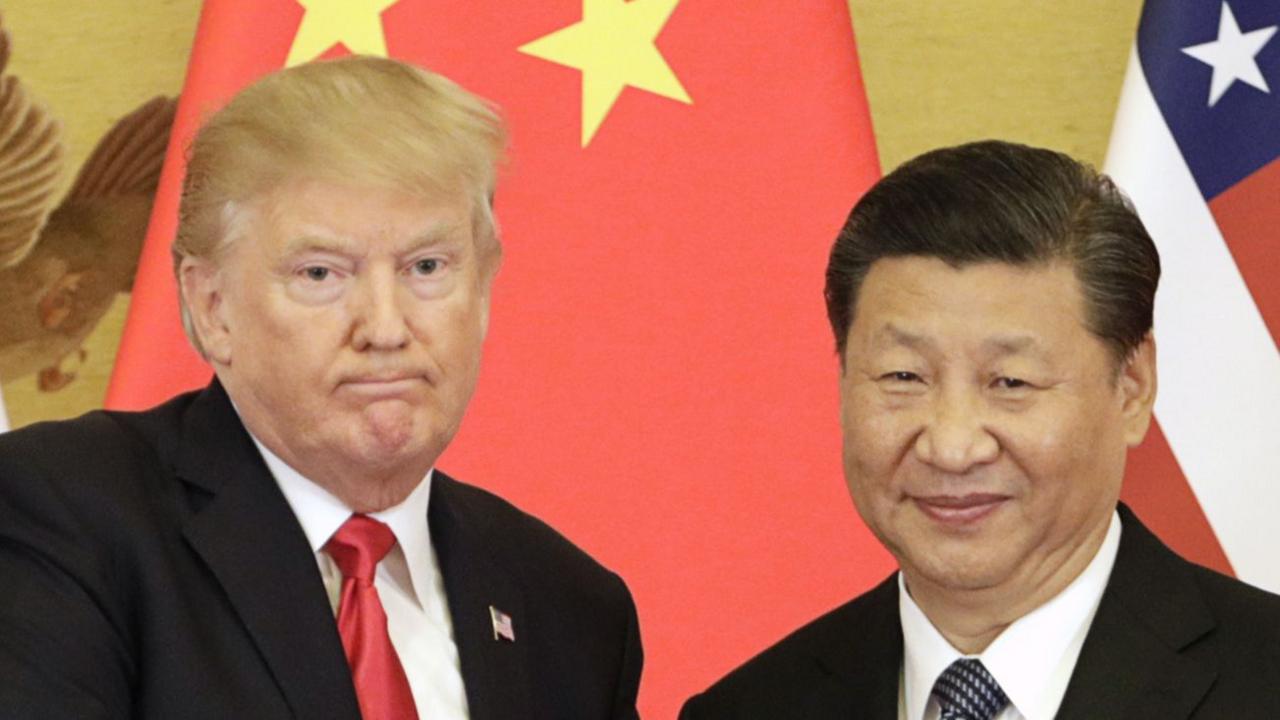US and Australia sign rare earths deal to counter China's dominance
Watch: Australia is getting submarines, says Donald Trump
- Published
The US and Australia have signed a deal intended to boost supplies of rare earths and other critical minerals, as the Trump administration looks for ways to counter China's dominance of the market.
Australian Prime Minister Anthony Albanese said the deal would support a pipeline of $8.5bn (A$13bn; £6.3bn) "ready-to-go" projects that would expand his country's mining and processing abilities.
It includes $1bn to be invested by the two countries in projects in the US and Australia over the next six months, a framework text says.
The US and Australia have been working on these issues since Trump's first term, but Albanese said the latest agreement would take the partnership to the "next level".

On Monday, US President Donald Trump also commented on Australia's multi-billion dollar submarine deal with the US and UK, known as Aukus, saying it was "full steam ahead".
Earlier this year, the deal came under the spotlight after the Trump administration said it would review the details to ensure it fit with its "America First" agenda, raising concerns Australia may not be able to buy US submarines to replace its ageing fleet.
Asked if Australia would be getting the submarines, Trump said: "Oh no, they're getting them".
China currently controls about 70% of rare earths mining and 90% of the processing of the materials, which are found in everything from defence equipment to computer chips and cars.
US companies rely heavily on the materials, making them vulnerable this year as China has taken steps to restrict access to supplies in response to new US tariffs and other tensions.
The shares in Australia rare earths mining companies jumped on Tuesday after the announcement.
Perth-based firm Arafura Rare Earths surged by around 7.7%, while another major producer, Iluka Resources, gained by more than 3%.
Albanese said the agreement was aimed at speeding investment in three types of projects, including US investments in processing facilities in Australia.
The two countries also agreed to work together on issues such as pricing, permitting, and rules for government review of the sales of companies and projects in the sector.
The US separately said it would invest in the construction of a 100 tonnes-per-year advanced gallium refinery in Western Australia and was preparing to offer some $2.2bn in financing to advance critical minerals projects via its Export-Import Bank.
The Trump administration in recent months has already announced a series of investments in companies such as US rare earths miner MP Materials and Canada's Trilogy Metals and Lithium America's, which have projects in the US.
In exchange for the support, it has received ownership stakes in the firms.
Ahead of the meeting, shares in Australian companies such as Lynas Rare Earths had jumped on the prospect of increased support. Lynas was awarded a contract by the US Defense Department a few years ago and is working on a project in Texas.
The framework published by the White House was light on details, reflecting the delicate issues at play.
Australia is a major source of critical minerals but like the US, it relies on China, its biggest trade partner, for the processing required to turn the materials into something companies can use.
Related topics
- Published17 October

